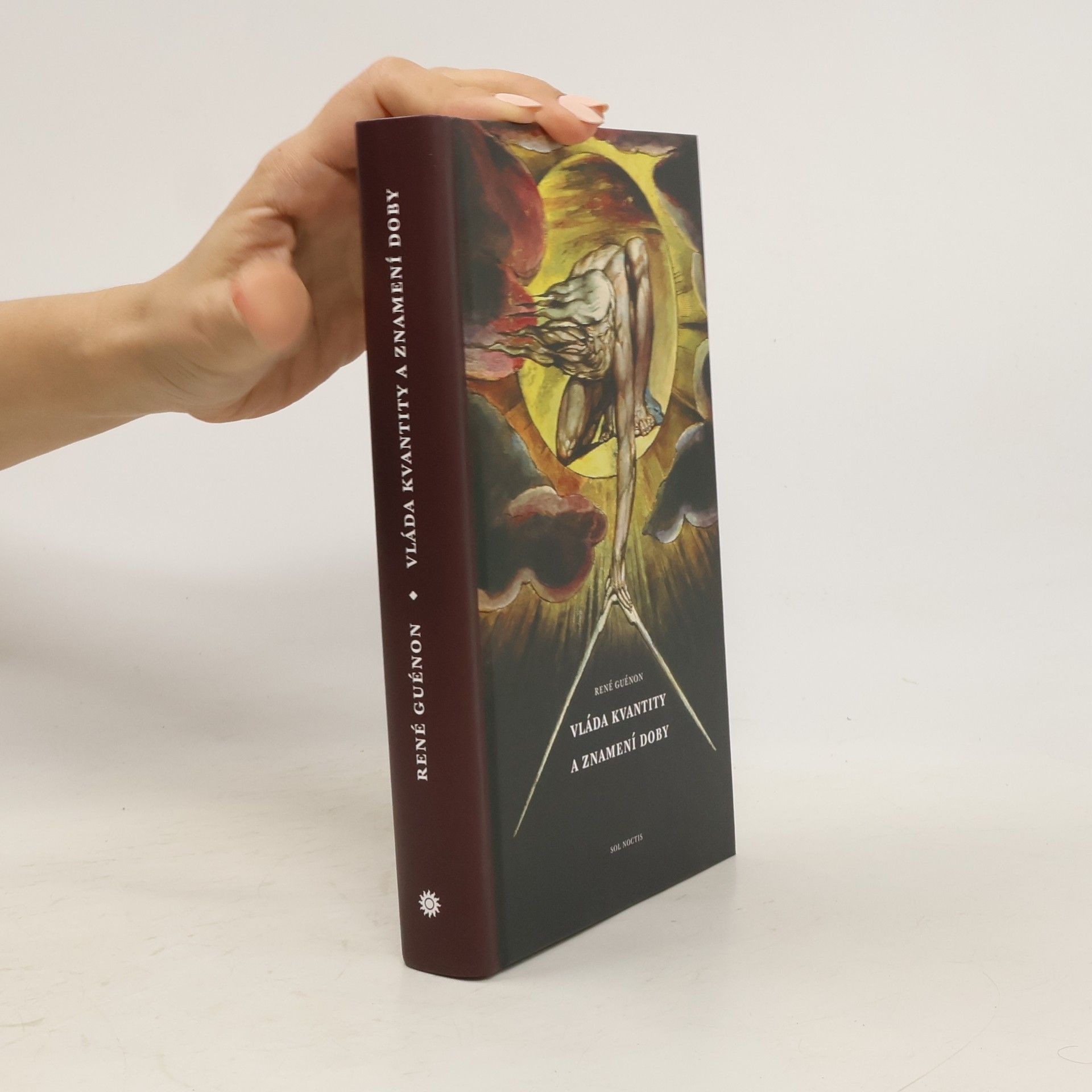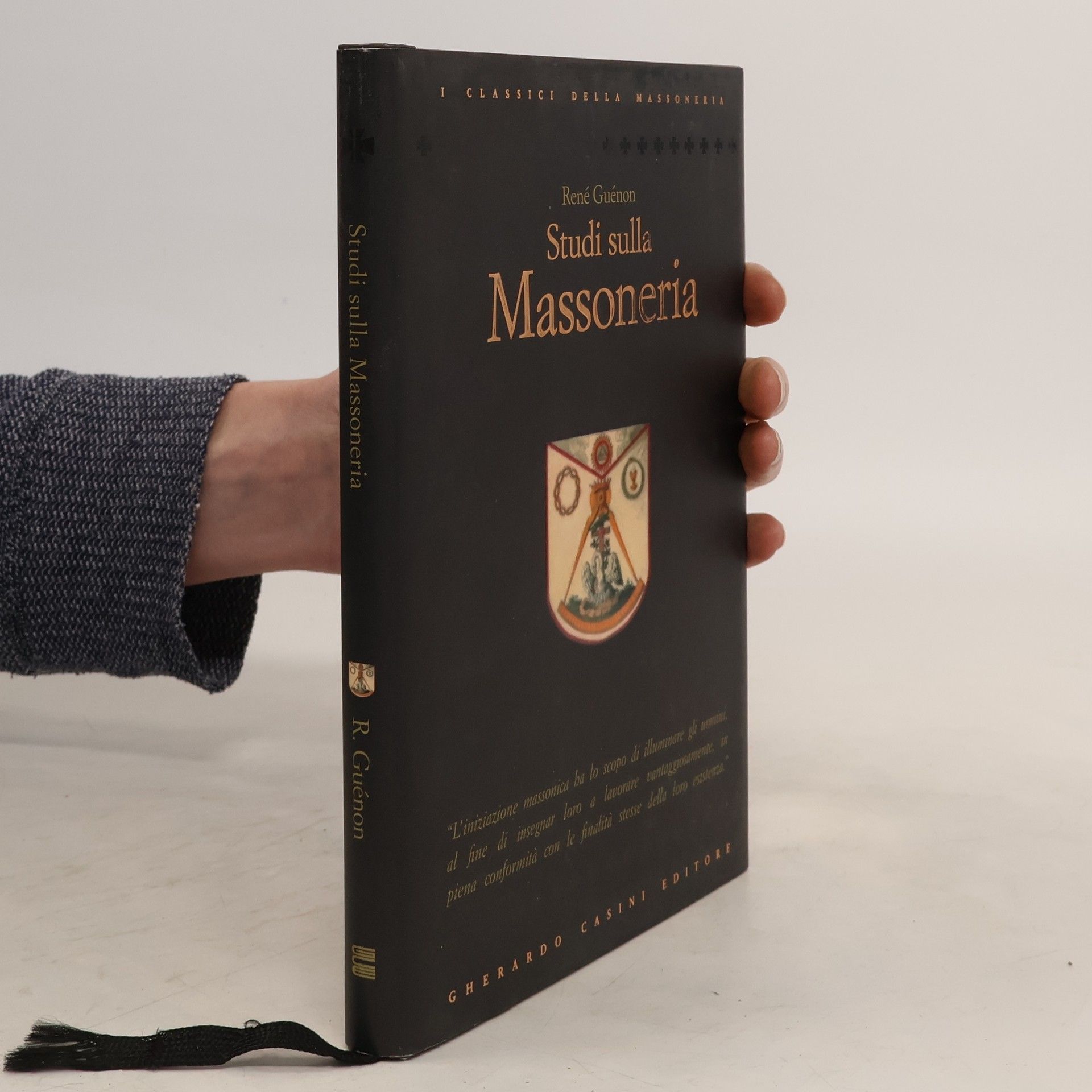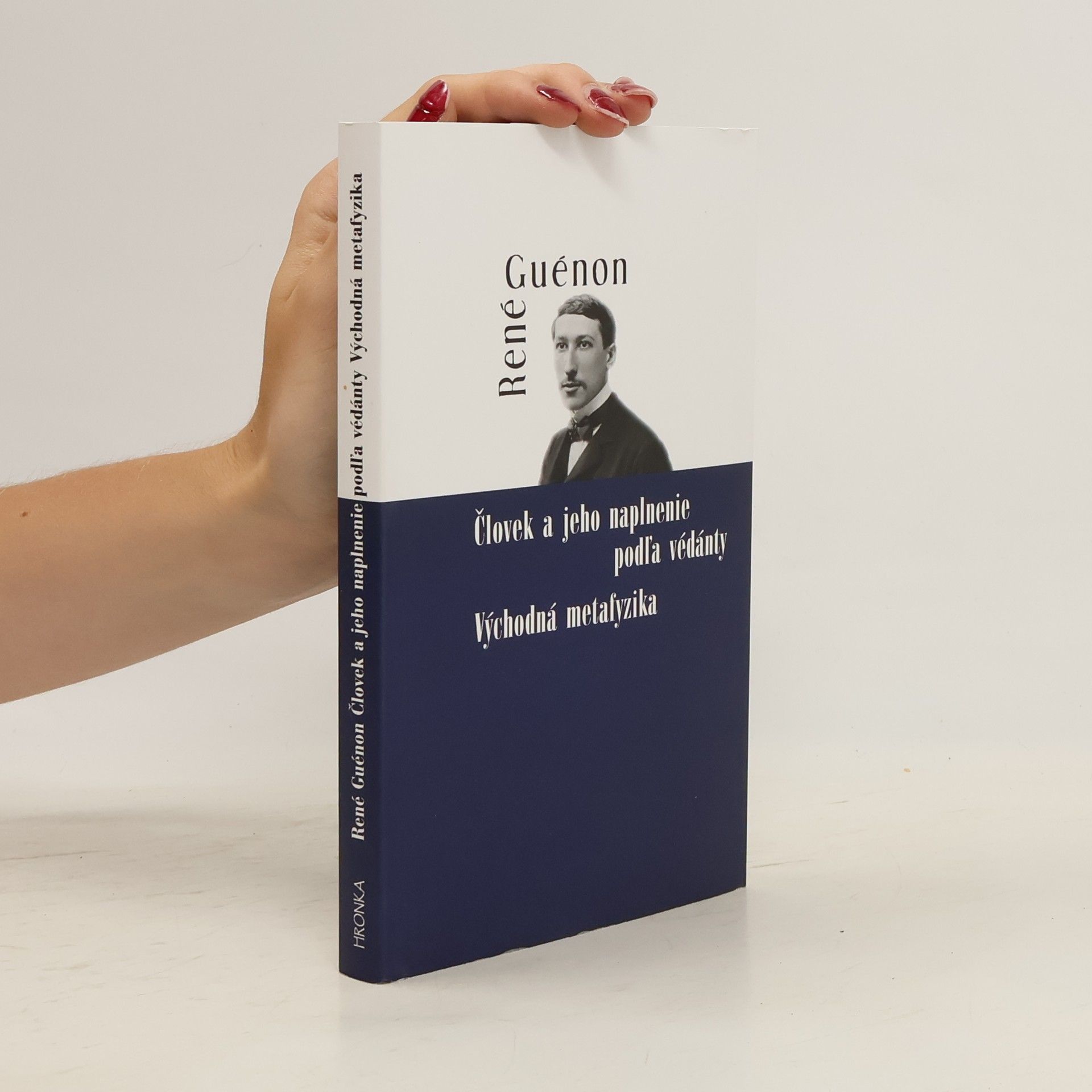René Guénon Book order (chronological)
René Guénon was a French author and intellectual who remains an influential figure in the domain of sacred science, traditional studies, symbolism, and initiation. His work delves into profound spiritual truths and esoteric traditions. Guénon's writings focus on analyzing the principles and metaphysical underpinnings of various spiritual paths, offering readers insight into timeless wisdom. His style is precise, and his thoughts are intended for those seeking a deeper understanding of reality and the spiritual essence of existence.



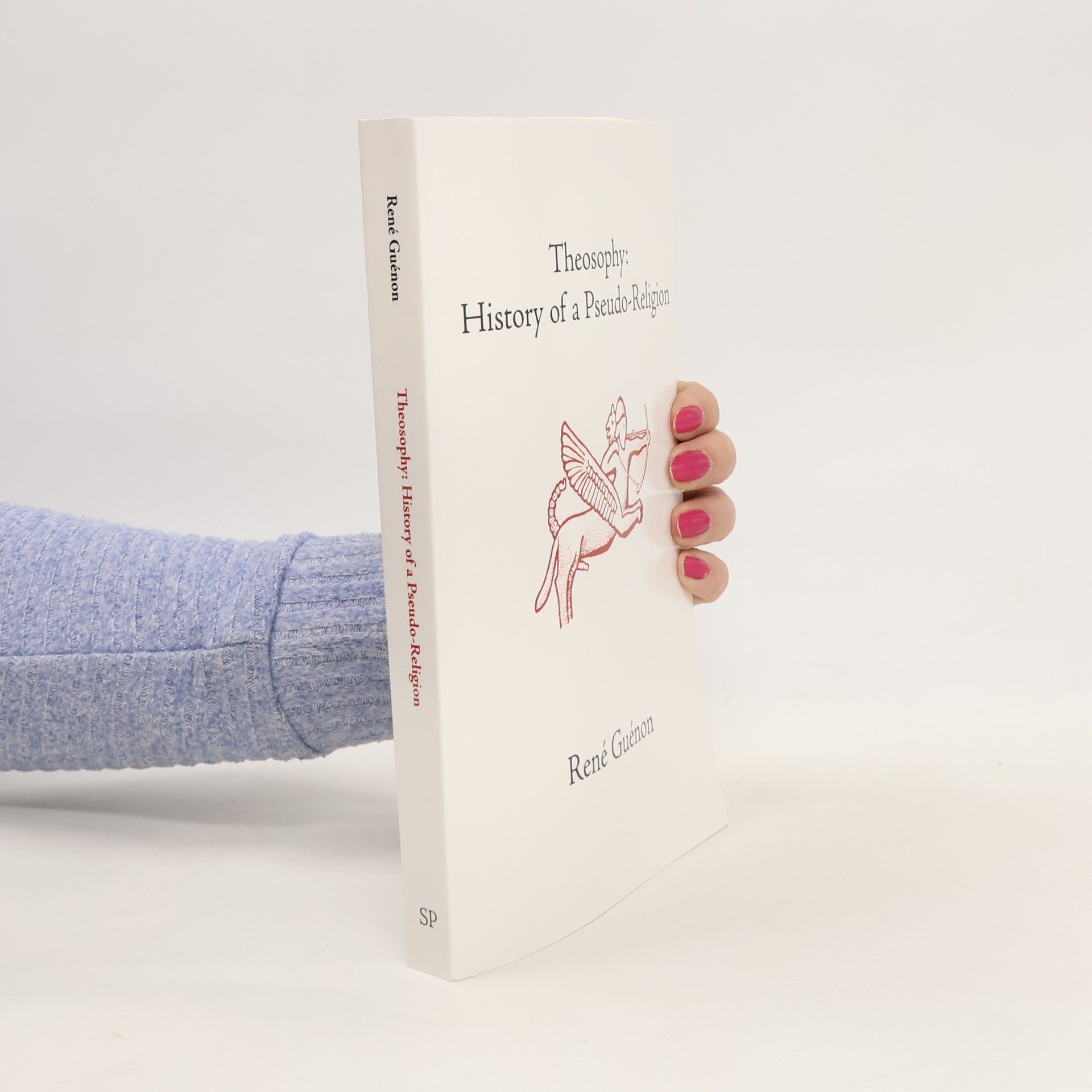

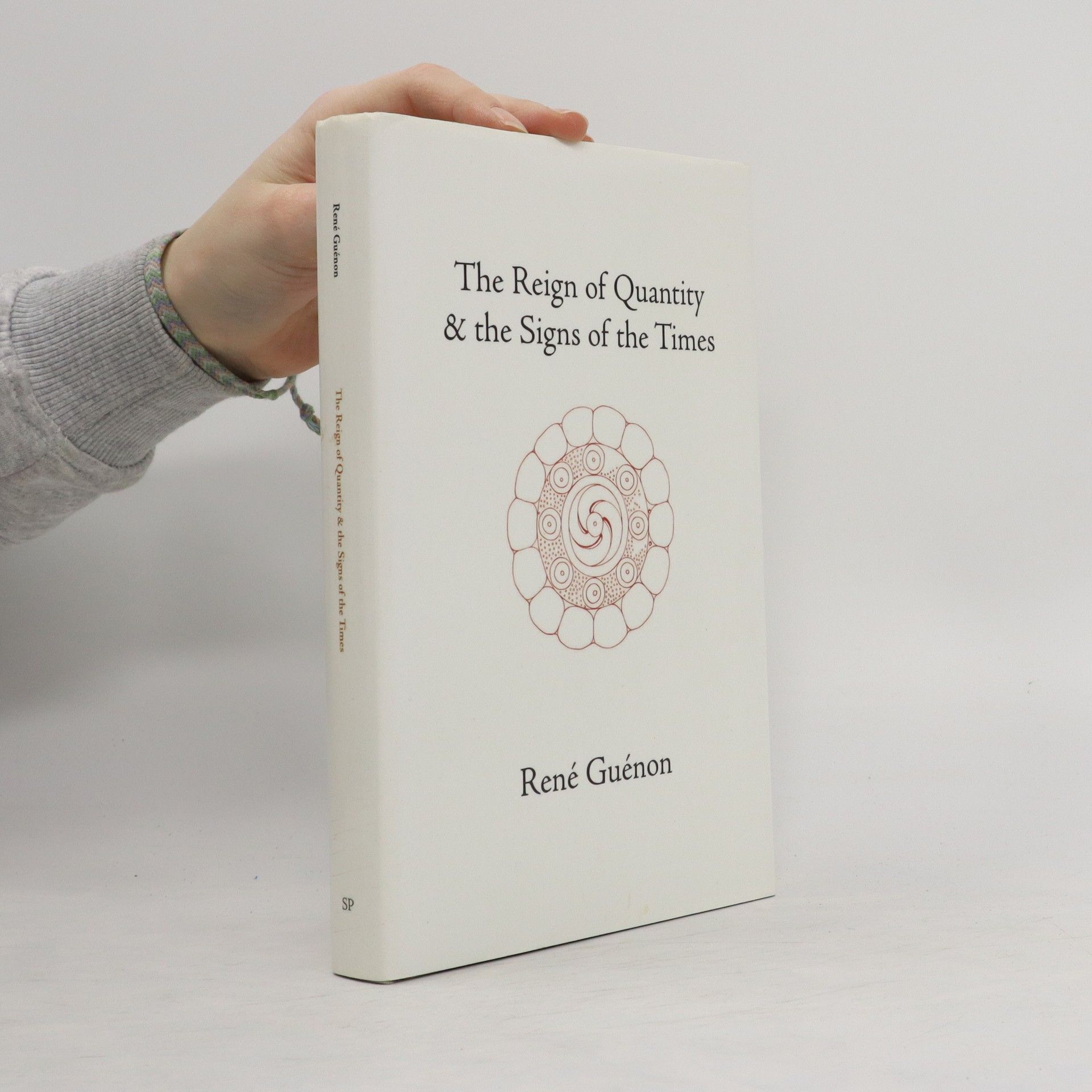
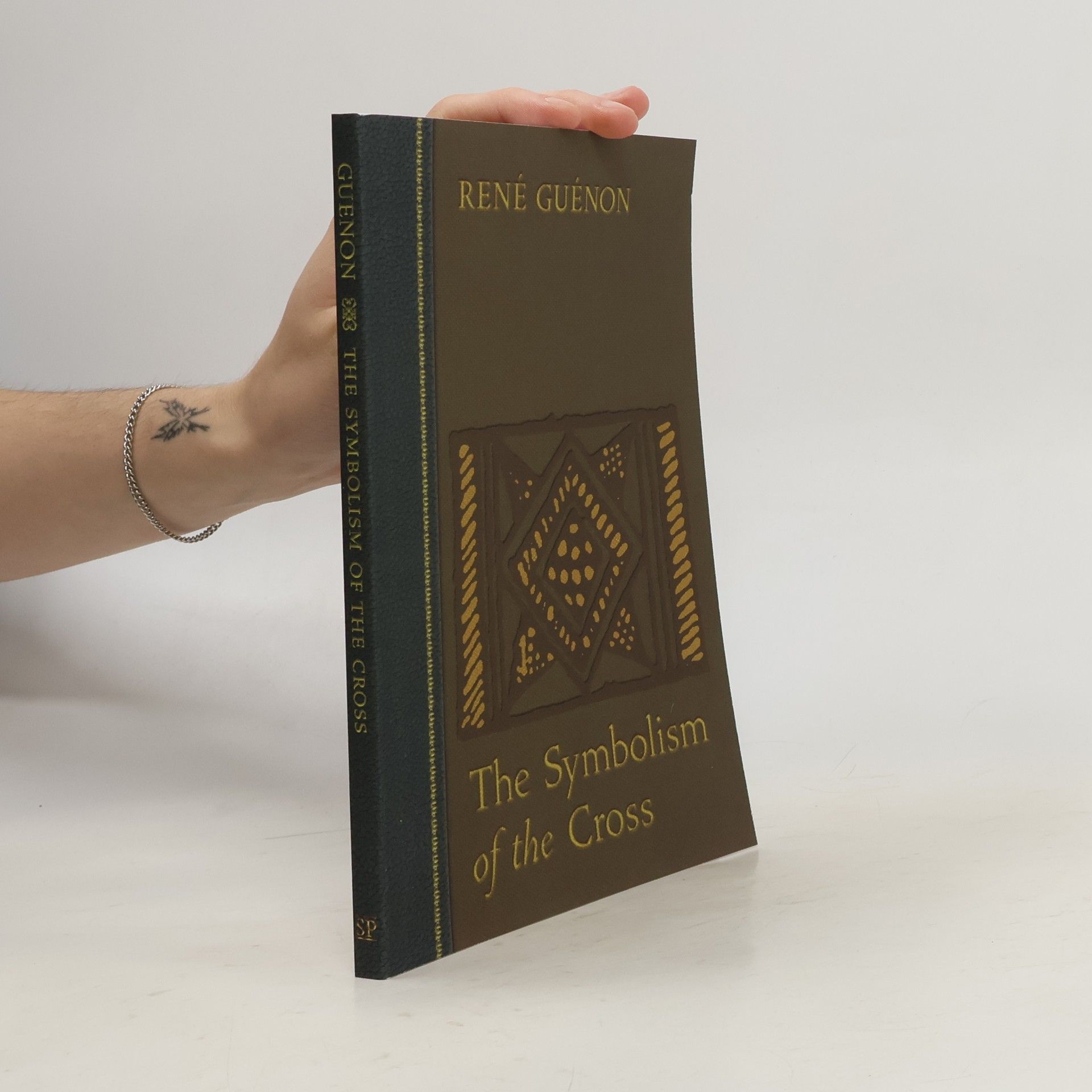
Vláda kvantity a znamení doby
- 312 pages
- 11 hours of reading
René Guénon (1886-1951) byl významný francouzský filosof a metafyzik, zakladatel školy integrálního tradicionalismu neboli perennialismu. Proslul svou kritikou moderního světa a snahou o esoterické smíření různých ortodoxních světových náboženství, v jejichž pozadí viděl obrysy univerzální, primordiální Tradice. Lidstvo podle Guénona podstupuje proces sestupu z duchovního zlatého věku, kdy veškerý způsob života směřoval k božskému, do odduchovněné, sekularistické moderny. Tvrdí, že se nejedná o subjektivní, nýbrž objektivní proces provázený ontologickým znehodnocením světa. Ve své pozdní knize Vláda kvantity a znamení doby, poprvé vydané v roce 1945, se zabývá posledními fázemi tohoto sestupu, kdy bude tradiční řád nejdříve nahrazen vládou stejnosti, konformnosti a kvantity, aby tento stav posléze vedl k ustanovení převráceného řádu. Při svém popisu čerpá z eschatologie různých náboženských tradic a všímá si filosofických prekurzorů urychlování sestupu v Descartovi a dokonce již v pozdní scholastice. Vláda kvantity je právem považována za završení Guénonova myslitelského díla, na jehož konci přes všechen pesimismus prozařuje víra v konečnou nápravu a překonání pádu člověka a veškerenstva.
Vláda kvantity a znamenia časov
- 272 pages
- 10 hours of reading
René Jean-Marie Joseph Guénon (15. november 1886, Blois, Francúzsko - 7. januára 1951, Káhira, Egypt) bol francúzsky metafyzický spisovateľ. V roku 1930 po manželkinej smrti opustil Európu a natrvalo sa usadil v Káhire. Mimo priameho dosahu tlakov prostredia, ktorého nepochopenie, ba až nevraživosť, mu v rodnom Francúzsku strpčovali život, sa tu v plnej miere mohol venovať písaniu a praktizovaniu súfijskej duchovnej cesty. V roku 1949 získal egyptské občianstvo. K hlavným témam Guénonovho diela patrí vzťah západného a východného sveta; možnosť prístupu k Tradícii, ktorá sprostredkuje skutočné, nie iba intelektuálne Poznanie, a ktorá sa naprieč rôznymi formami sprostredkovania vo svojej podstate nemení a nepodlieha dobovým vplyvom; štúdium symbolov a ich miesto na ceste Poznania; tajné vedy; kríza moderného sveta, ktorý Guénon chápe ako úchylku scestnej, teda západnej civilizácie. Medzi jeho najvýznamnejšie diela patria okrem predkladaného titulu knihy Kríza moderného sveta, Kráľ sveta, Všeobecný úvod do štúdia hinduistických náuk, Človek a jeho naplnenie podľa védánty či Symbolika kríža. Po období, keď bolo Guénonovo dielo s výnimkou úzkeho okruhu čitateľov prehliadané a marginalizované, sa v posledných desaťročiach stáva čoraz viac predmetom záujmu aj v rámci akademického prostredia. Kniha Vláda kvantity a znamenia časov z roku 1945 je pokladaná za Guénonovo opus magnum.
Correspondance I
- 422 pages
- 15 hours of reading
Studi sulla massoneria
- 112 pages
- 4 hours of reading
Nonostante il fatto che la questione dell’origine storica della Massoneria sia molto complessa e dibattuta, in questo volume verrà analizzata sia la sua nascita che la sua filosofia servendoci degli studi di eminenti studiosi del passato. In questo modo scopriremo che cosa comporta l’iniziazione massonica, quali sono le sue fasi ed infine cosa significa realmente essere un Massone. Per quanto riguarda la filosofia della Massoneria, René Guénon la sintetizza chiaramente con queste parole: “la Massoneria non può e non deve collegarsi ad alcuna opinione filosofica particolare, essa non è spiritualista più che materialista, deista più che atea o panteista… perché essa deve essere puramente e semplicemente la Massoneria…”
Človek a jeho naplnenie podľa védánty
- 284 pages
- 10 hours of reading
V knihe Človek a jeho naplnenie podľa védánty, ktorá je prvým rozsiahlym metafyzickým dielom Reného Guénona (* 1886 –† 1951), autor do hĺbky analyzuje všetky základné pojmy védánty, ktorá je podľa indickej tradície zavŕšením a najvyšším stupňom Véd. Guénon sa po celý život venoval hlbokému štúdiu najvýznamnejších východných učení (védánta, taoizmus, súfizmus), preto mu jeho erudícia umožnila nachádzať prínosné paralely medzi nimi, poukazovať na ich vzájomné vplyvy, ako aj na obzor, ktorý otvárajú a ktorý sa podstatne líši od obzoru filozofie v západnom ponímaní. Guénon sám o sebe hovorí ako o „sprostredkovateľovi“ náuk, ktoré majú nadindividuálny charakter. V súlade s tým ponúka verný a detailný pohľad na védántu, ktorý je v prevažnej miere inšpirovaný šivaistickou interpretáciou významného svätca Šankaráčárju. Podľa viacerých ide o najpresnejšie uchopenie védánty z pera západného autora. Kniha je doplnená prácou Východná metafyzika, prednesenou na parížskej Sorbonne v roku 1925, ktorá predstavuje stručné zhrnutie autorových postojov k ponukám Východu a Západu.
Gli Adelphi - 346: Il regno della quantità e i segni dei tempi
- 270 pages
- 10 hours of reading
Con quest'opera, Guénon formula una critica definitiva al mondo moderno, rivelando il suo ricco fondo dottrinale. A differenza di altri critici della cultura, che hanno mantenuto legami con ciò che attaccano, Guénon si distacca completamente, descrivendo l'Occidente come osservatore distante di una realtà in cui «il frutto maturo cade ai piedi dell'albero». La sua prosa chiara e precisa esplora le categorie teoriche e storiche che hanno dato origine alla civiltà moderna: quantità e qualità, nomadismo e sedentarismo, tempo lineare e ciclico, sfera e cubo, unità e semplicità, misura e manifestazione. Dopo aver analizzato i simboli fondamentali in precedenti scritti, Guénon li presenta nelle loro metamorfosi storiche, rivelando come la loro visione cambi nel corso dei cicli. Si delinea così uno sviluppo del mondo moderno basato su un sapere primordiale che è stato rifiutato, con le conseguenze che Guénon descrive con straordinaria lucidità. La sua critica non si limita a «progresso», «ugualitarismo» o «razionalismo», ma cerca di interpretare queste manifestazioni come «segni dei tempi», sintomi di un processo vasto e segreto, il cui movimento è alimentato dall’«odio per il segreto».
Francouzský filozof, zasvěcenec súfismu, přibližuje posvátnou symboliku "duchovního středu světa". Všechny tzv. duchovní tradice prokazují existenci země v pravém smyslu svaté, která je ostatním svatým zemím nadřazena jako jejich prototyp - "země živých". Bývá zpravidla lokalizována do "neviditelného světa" . Pro nepovolané je fakticky neviditelná a nedostupná. Matematik a filozof z hlediska tradičních metafyzických i esoterických nauk interpretuje tzv. zemi živých.
The Esoterism of Dante
- 80 pages
- 3 hours of reading
René Guénon (1886-1951) critiques modernity through 26 volumes, highlighting perennial wisdom across diverse cultures. In "The Esoterism of Dante," he explores Dante's initiatic journey and medieval esoterism, while "Insights into Christian Esoterism" examines sacred languages and esoteric themes. His works remain vital for contemporary seekers of spiritual truth.
